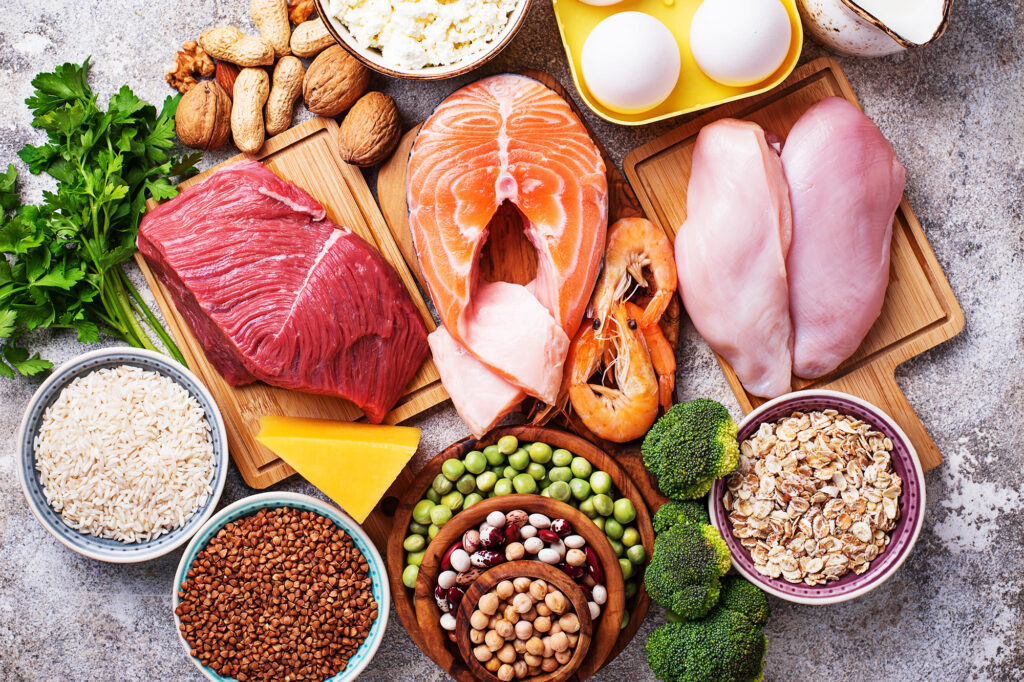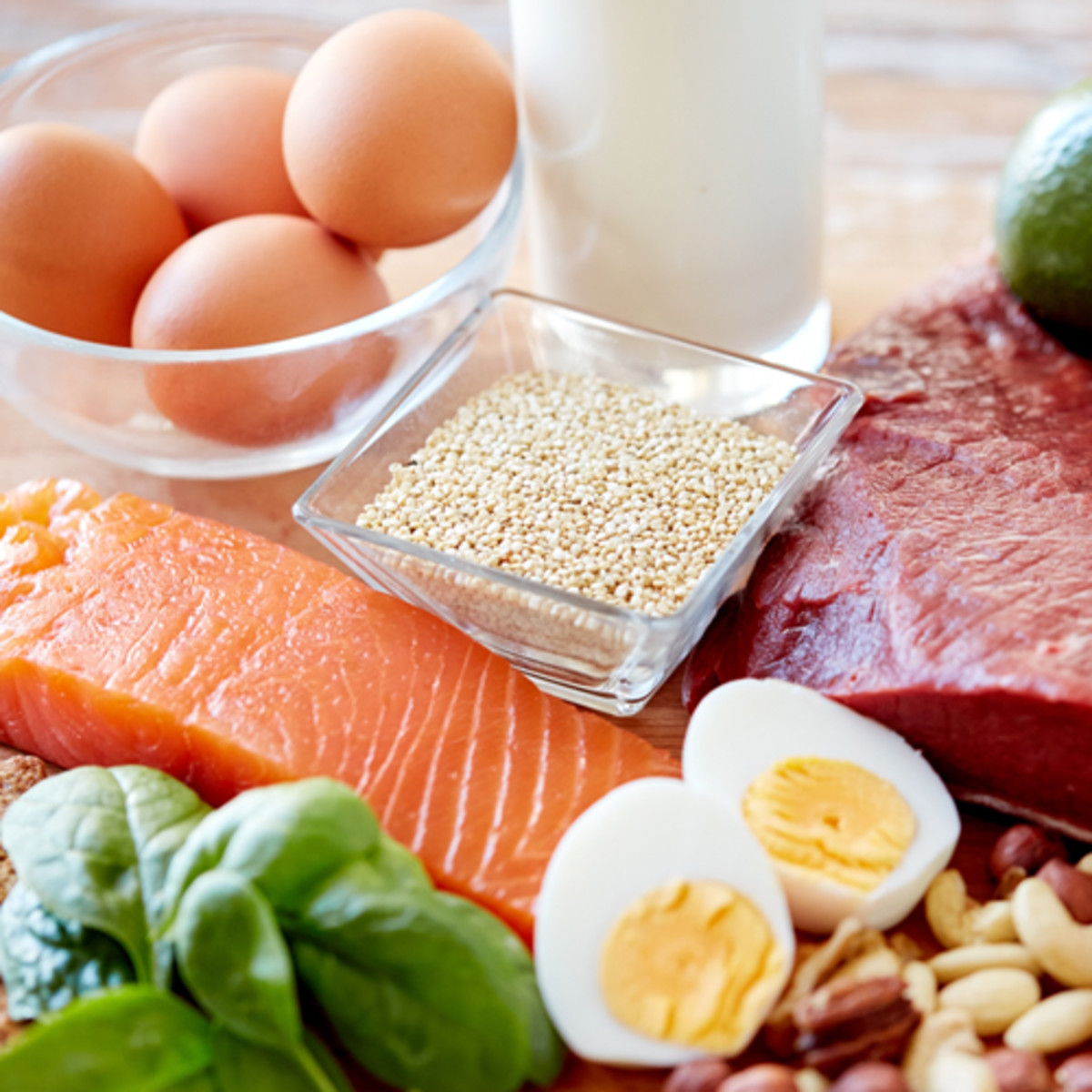Are you struggling to lose weight and wondering if there’s a natural way to achieve your weight loss goals? Could the answer lie in the foods you’re eating? Well, you’re not alone. Many people have turned to a high-protein diet to help them lose weight effectively and sustainably. In fact, increasing your protein intake could be one of the most powerful ways to shed pounds and maintain a healthy lifestyle.
So, what’s the science behind the high-protein diet for weight loss? And how can you use it to your advantage?
In this article, we’ll explore the key aspects of a high-protein diet, how it contributes to weight loss, and why it could be the game-changer you need. Plus, we’ll dive into tips, meal suggestions, and answer your frequently asked questions to make sure you’re well-equipped to start your journey toward a healthier, slimmer you!

Why High Protein Diets Work for Weight Loss
If you’ve been searching for ways to lose weight naturally, you’ve likely come across various diets and trends. However, few diets have as much research-backed support as the high-protein diet. This dietary strategy involves increasing your protein intake while possibly reducing carbs and fats to help your body shed fat more efficiently. So, how does it work?
1. Protein Boosts Satiety and Reduces Hunger
One of the most significant reasons a high-protein diet helps with weight loss is its effect on appetite regulation. Protein is known to make you feel full for longer periods, which means you’ll consume fewer calories overall. This natural hunger suppression can be incredibly helpful for those who struggle with overeating.
2. Protein Boosts Metabolism
When you consume protein, your body requires more energy to digest it compared to fats and carbohydrates. This phenomenon, known as the thermic effect of food (TEF), helps increase your metabolism, which means you burn more calories even at rest. As a result, the more protein-rich foods you eat, the more calories your body burns throughout the day.
3. Protein Helps Preserve Muscle Mass
When you’re on a calorie-restricted diet, there’s a risk of losing muscle mass. However, consuming a high-protein diet helps prevent this muscle loss by supporting muscle repair and growth. Preserving muscle mass not only helps keep your metabolism high, but it also gives you a toned appearance as you lose weight.
4. Protein Improves Insulin Sensitivity
Studies have shown that a high-protein diet can help improve insulin sensitivity, which is crucial for weight management. When your body’s insulin levels are balanced, it becomes easier to burn fat and regulate your blood sugar levels, making weight loss more attainable.
How to Implement a High-Protein Diet for Weight Loss
Now that you understand the science behind high-protein diets, let’s take a look at how you can implement them into your daily routine. A well-structured high-protein diet can make all the difference in achieving your weight loss goals.
1. Calculate Your Protein Requirements
To get started, it’s important to calculate how much protein you need. A general guideline is to consume between 1.0 to 1.5 grams of protein per pound of body weight. For example, if you weigh 150 pounds, you should aim for 150 to 225 grams of protein per day. However, individual needs may vary based on factors like activity level and overall health goals.
2. Focus on Protein-Rich Foods
To meet your protein needs, focus on incorporating a variety of protein-rich foods into your diet. These include:
-
Lean meats (chicken, turkey, lean beef)
-
Fish and seafood (salmon, tuna, shrimp)
-
Eggs and egg whites
-
Dairy products (Greek yogurt, cottage cheese)
-
Legumes and beans (lentils, chickpeas, black beans)
-
Nuts and seeds (almonds, chia seeds, pumpkin seeds)
-
Plant-based protein (tofu, tempeh, edamame)
3. Plan Your Meals Ahead of Time
To ensure you’re meeting your protein goals, it’s helpful to plan your meals. Here’s a simple high-protein meal plan for a day:
-
Breakfast: Scrambled eggs with spinach and a side of Greek yogurt
-
Lunch: Grilled chicken breast with quinoa and steamed broccoli
-
Snack: A protein smoothie made with protein powder, almond milk, and berries
-
Dinner: Salmon fillet with roasted vegetables and a side of quinoa or brown rice
4. Avoid Processed Foods and Sugary Snacks
While it’s tempting to go for convenient, processed foods, they often come with added sugars and unhealthy fats that can hinder your weight loss efforts. Stick to whole, natural foods as much as possible to optimize your high-protein diet for weight loss.

Frequently Asked Questions (FAQ)
1. Can a High Protein Diet Help Me Lose Belly Fat?
Yes, a high-protein diet can help target belly fat. By increasing your protein intake, you reduce your overall calorie intake and improve your metabolism, which contributes to fat loss, including around your abdomen. Pairing a high-protein diet with regular exercise and proper sleep enhances the fat-burning process.
2. What Are the Best High Protein Foods for Weight Loss?
Some of the best high-protein foods include lean meats like chicken and turkey, fish like salmon and tuna, eggs, dairy products like Greek yogurt, and plant-based sources like tofu and lentils. These foods are not only high in protein but also provide essential nutrients for overall health.
3. Can a High Protein Diet Be Dangerous?
While a high-protein diet is generally safe for most people, it’s important not to overdo it. Extremely high protein intakes can stress the kidneys over time, especially for individuals with pre-existing kidney conditions. Always consult with your doctor before making drastic changes to your diet.
4. How Much Protein Should I Eat to Lose Weight?
To lose weight, aim for around 1.0 to 1.5 grams of protein per pound of body weight per day. This can help you feel full, boost metabolism, and preserve muscle mass. If you’re unsure, it’s a good idea to consult with a nutritionist or dietitian for personalized advice.
5. Can a High Protein Diet Work for Women?
Absolutely! A high-protein diet is equally effective for women looking to lose weight. Protein helps with muscle preservation, metabolism, and appetite control, all of which are crucial for healthy weight loss. Women can follow the same principles for protein intake as men, though individual needs may vary based on age, activity level, and goals.
6. What Are the Side Effects of a High Protein Diet?
While side effects are rare, some individuals may experience digestive discomfort, such as bloating or constipation, when they first increase their protein intake. It’s important to drink plenty of water and balance protein with fiber-rich vegetables and whole grains to prevent these issues.
Stay Consistent and Be Patient
Incorporating a high-protein diet into your routine can be a powerful tool for losing weight naturally. By reducing hunger, boosting metabolism, and helping preserve muscle mass, a high-protein diet sets the stage for sustainable weight loss. Remember, the key to success is consistency. Combine your high-protein meals with regular physical activity, adequate sleep, and a balanced lifestyle for the best results.
Stay patient with your journey, and celebrate small victories along the way. Over time, you’ll see the transformation as you shed pounds, improve your health, and feel more confident in your body.